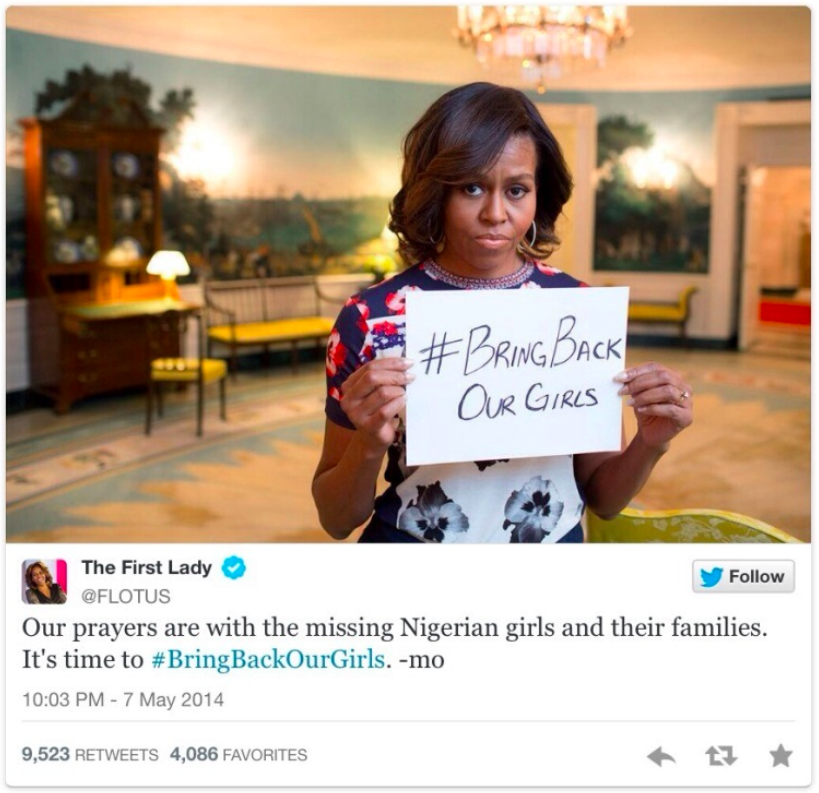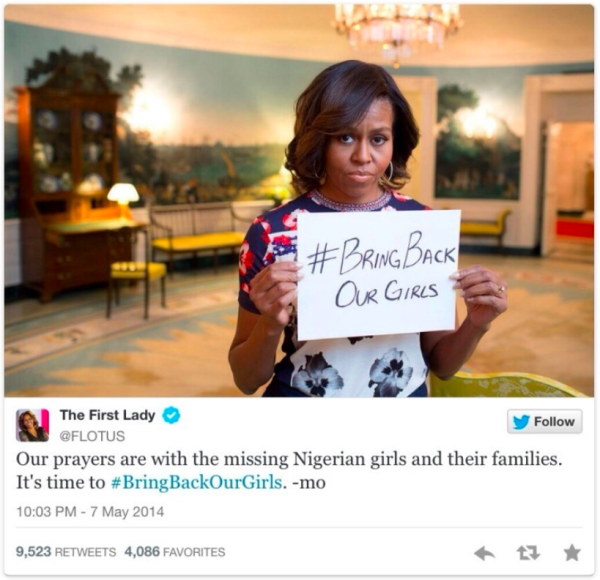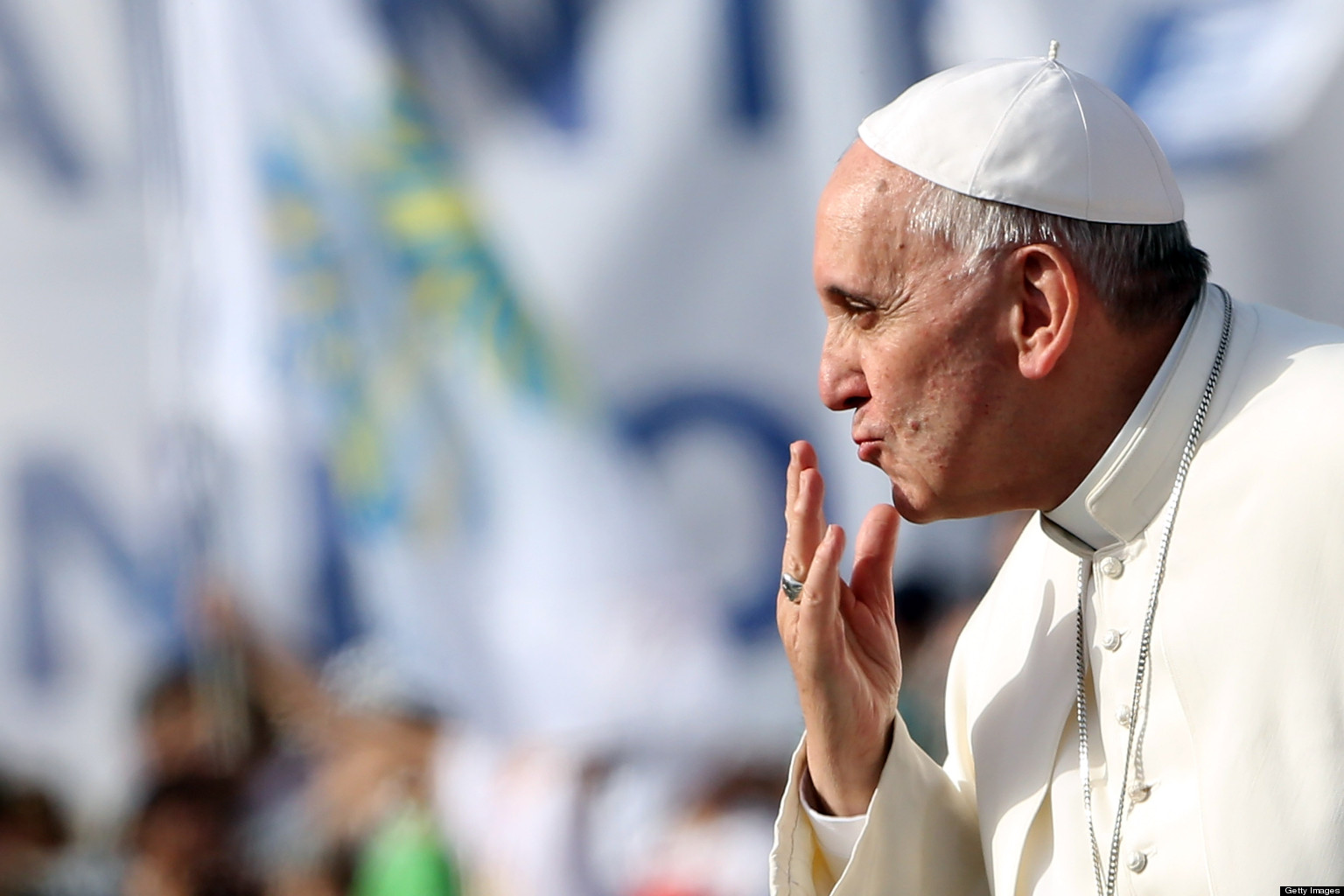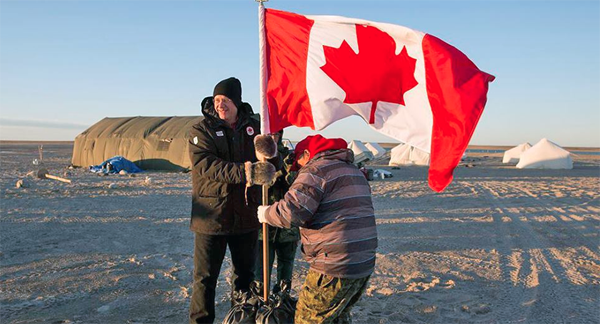On April 15, in the heart of Northern Nigeria, an estimated 276 female students aged 15 to 18 were brutally abducted. Responsible for the kidnapping was extremist Muslim group “Boko Haram”, whose name means “Western education is a sin” in Hausa language. The latter actions triggered an international frenzy as hundreds of headlines and televised reports quickly spread the tragic news. As days turned into weeks, many international actors and prominent members of society publicly expressed their thoughts and concerns on the fate of the Nigerian girls.
These public addresses were first limited to political figures, such as U.S Secretary of State John Kerry, whose speech was communicated via traditional media platforms. However, it was the later role of social media and the overwhelming involvement of prominent celebrities in pop-culture that truly gave the event an added, international dimension.
Undoubtedly, the uncomfortable reminder that some nations still deny education to young women renewed interest and added a sense of urgency to the promotion of women’s rights. The recent narrative shared by female Pakistani education activist, Malala Yousafzai, has undeniably set an unprecedented, global platform for conversation on the topic of women’s education. In I Am Malala, the young woman emotionally recounts her journey of promoting educational rights for women in Pakistan under the rule of the Taliban. The latter activism led to her being tracked and shot on her school bus three times by a gunman carrying a Colt 43. As Yousafzai was placed in critical care at Queen Elizabeth Hospital in Birmingham, England, her story gained international attention and she was even nominated for a Nobel Peace Prize in 2013 at the young age of 16.
Famous media figures such as TV talk show host, Ellen Degeneres, Grammy award winning musician, Alicia Keys, Fast and the Furious actor, Dwayne “The Rock” Johnson and even the U.S First Lady, Michelle Obama, shared images of themselves holding #bringbackourgirls signs.
Like Yousafzai’s narrative, the abduction of the Nigerian girls not only sparked conversation in the West, but also evolved into a true social media phenomenon. Dozens of celebrities took to their Instagram, Twitter and Facebook accounts, turning #bringbackourgirls into a top trending topic worldwide. Famous media figures such as TV talk show host, Ellen Degeneres, Grammy award winning musician, Alicia Keys, Fast and the Furious actor, Dwayne “The Rock” Johnson and even the U.S First Lady, Michelle Obama, shared images of themselves holding signs reading #bringbackourgirls. The campaign, although criticised by some as a celebrity-bandwagon unable to lead direct initiatives against the terrorist group involved or the Nigerian government, has still promoted dialogue and exposure.
The real question is, how much does exposure matter in the long run? Can celebrities, stereotypically known for sharing images of their dog, lunch, #ootd (outfit of the day) and the mandatory selfie, actually have a worthwhile influence on international affairs via smart phone? Do these new technological platforms and social media avenues really speak to society?
The surprising answer? Yes – they definitely do. Especially for the Western-youth. Recent studies have confirmed the excessive usage by children and young adults of social media and other smartphones applications. These platforms have become so integral to their lives that international actors and prominent members of society would be foolish not to use them. However, these tools must be used with caution — an overlooked typo or poor wording can quickly escalate into a huge PR mess. However, a successful campaign as exemplified by the #bringbackourgirls should prompt international leaders to further connect with society.
Perhaps celebrities feel pressured by their peers and publicists to join a humanitarian “cause”. However superficial this may initially seem, having millions of followers — much more than the average diplomat or politician — gives celebrities the unique ability to appeal to huge fan bases in an easy, quick “click!”.
Social media has been repeatedly hailed for its ability to give the average person a voice on an international platform traditionally reserved for a political elite.
By pushing the conversation surrounding women’s educational rights into the social realm, celebrities have placed Nigeria’s disaster mitigation attempts under an unforgiving microscope. The government’s actions are liable to criticism not only by prominent world leaders, but any regular Twitter, Instagram or Facebook user. Social media has been repeatedly hailed for its ability to give the average person a voice on an international platform traditionally reserved for a political elite. The final, crucial piece to this modern day social activism? The hashtag.
Most people cite #Kony2012, a campaign asking for the arrest of International Criminal Court fugitive Joseph Kony, as the first “political” use of a hashtag. After gaining almost instant mainstream recognition, the controversial campaign died down within a few days. However, the #bringbackourgirls campaign has remained strong for several weeks. This prolonged success may be due to the campaign’s not asking users for direct donations – as was the case for #Kony2012. The latter campaign asked individuals to show their support by buying bracelets and posters from unverified sources. Although the #Kony2012 YouTube video was shared and liked millions of times across social media, it had a lukewarm response from viewers given its questionable commercial dimension, single-man focus and overall lack transparency. The fight for women’s rights, in Nigeria and elsewhere, is a fight untainted by such merchandising mechanisms or simplified puppet brandishing.
The ability to hashtag one’s views on any given tragedy, as simple as it may sound, has almost become a responsibility for the younger generations in Western societies. To ignore the power of social media today would be to like ignoring the power of radio in the 1930s or the power of television in the 1980s. Despite the inherent controversy of “slacktivism”, as it has been colloquially called, one cannot deny that a new era of social activism has arrived, its flaws deserving of constructive criticism as opposed to immediate dismissal.





